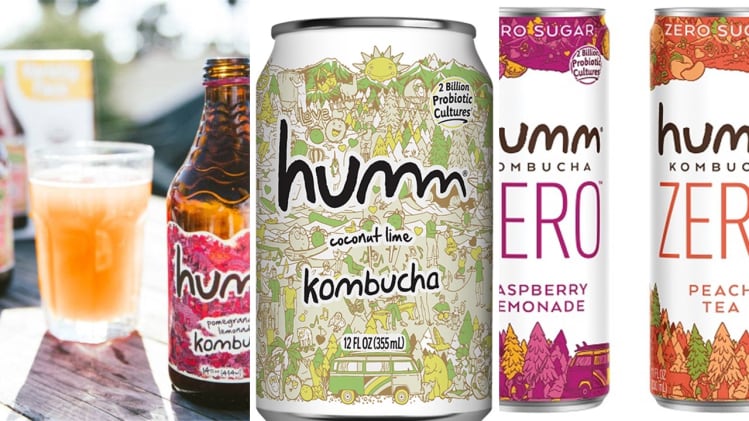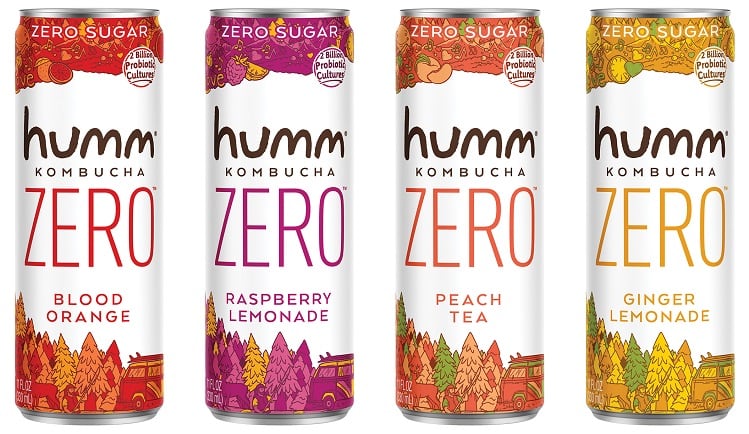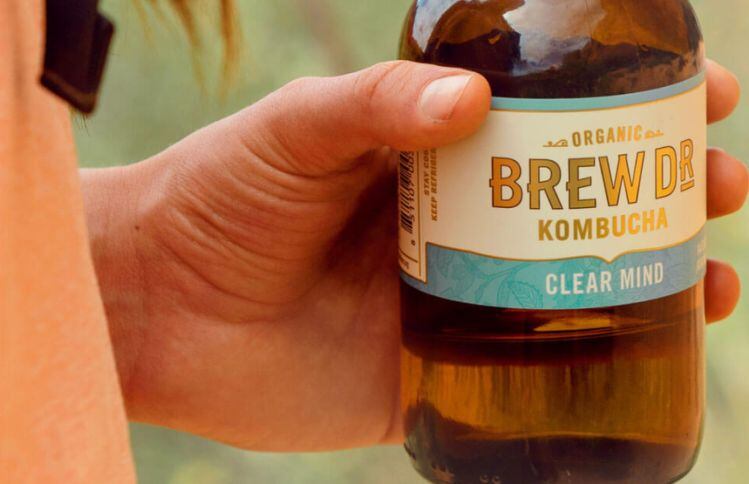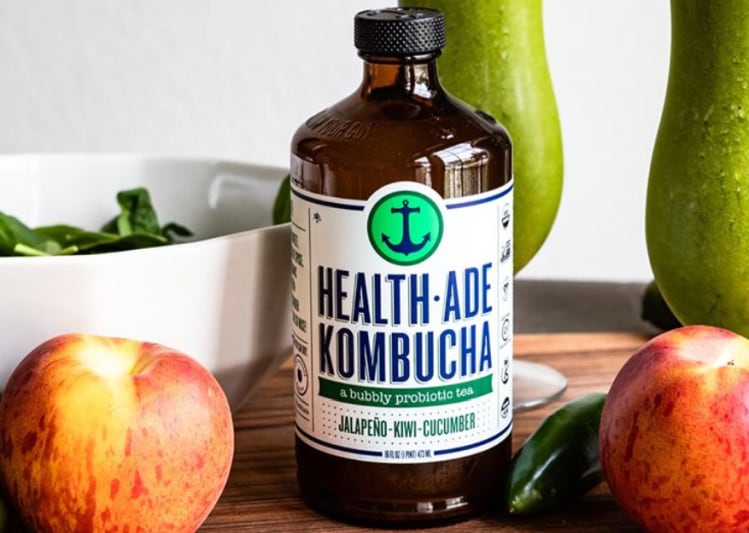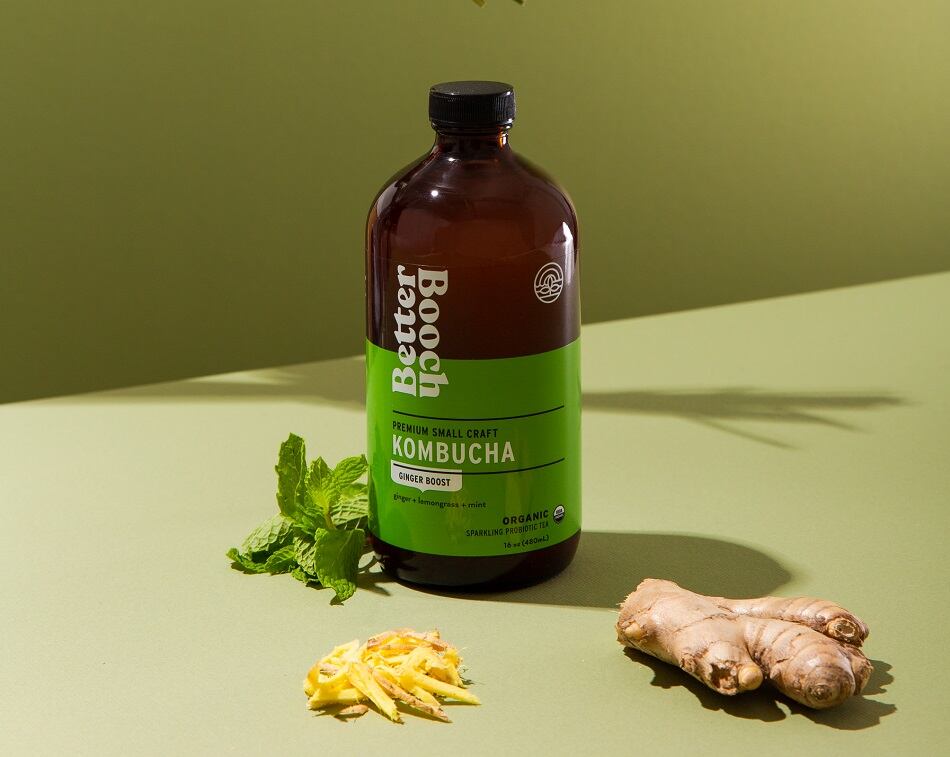While US retail sales of kombucha – which has generated strong double-digit growth for several years – have slowed over the past year and are now “pretty flat,” Humm is still growing, said president Matt Witherall, a beverage industry veteran who joined Humm Kombucha last summer.
Humm Kombucha reckons the $1bn kombucha category could grow to 2-3 times that size, chiefly by attracting new consumers and creating new usage occasions for kombucha, household penetration of which is still fairly low (10-15%), Witherell told FoodNavigator-USA.
“What the industry is looking for to ignite the next phase of growth is new consumers, new occasions, which is what Humm Zero can do; as it’s shelf stable, you can take it on hikes, take it to the office, to the beach, which you maybe wouldn’t do [with refrigerated kombucha in a glass bottle].
“What was designed for the early adopters is not necessarily what the new consumers want.”
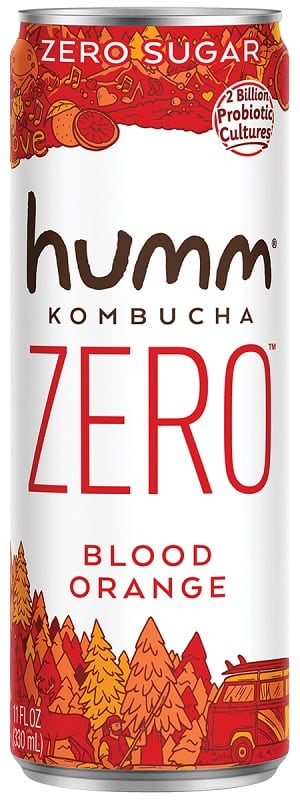
We ferment our tea until the sugar’s all gone
Available in four flavors in select stores in key metropolitan areas and via Amazon starting April in 11oz cans ($2.99) and four-packs (9.99), Humm Zero has 10 calories, zero sugar, added probiotics and vitamin B12, and is sweetened with monk fruit and allulose, which has no impact on blood sugar and has only 0.4 calories/gram.
While fermented beverages such as kombucha require sugar for their live microorganisms (bacteria and yeast) to feed on (they convert sugar into alcohol, acetic acid - explaining kombucha’s slightly sour, vinegary taste - and other organic acids), all of the sugar in Humm Kombucha is used up in the fermentation, explained co-founder Janie Danek, who started delivering kombucha door-to-door in a Toyota Prius in 2009 with co-founder Michelle Mitchell and is now supplying thousands of retailers from Walmart and Target to Whole Foods.
“We ferment our tea until the sugar’s all gone. Now in a traditional fermentation this would basically create a vinegar, but because of our proprietary process ours is much more palatable. It’s absurdly tasty.”
In its regular refrigerated products, which contain a small amount of sugar, Humm adds back some fruit juices after the first fermentation, which contribute to the sugars listed on the Nutrition Facts panel; whereas for Humm Zero, it adds allulose and monk fruit (which add sweetness, but are not classified as added sugars) and natural flavors, said Danek.
“It’s still live and raw and it’s naturally shelf-stable because there’s no sugars for the yeast to consume.”
According to data from SPINS, US retail sales of kombucha were up 3% in the 52 weeks ending January 26, 2020, vs growth of 25.4% in the year to Jan 27 2019, and growth of 60.1% in the year to Jan 28, 2018.
The manufacturing set up
While it remains bullish about the kombucha category, Humm has abandoned plans to build a production facility in Roanoke Virginia in addition to its facility in Bend, Oregon after developing a proprietary process to keep alcohol levels in its kombucha consistently below 0.5% regardless of whether bottles fall out of the cold chain, said Danek.
“When we started utilizing our new process we realized that it could produce a lot more kombucha in a lot less space, so in the end we ended up not building in Roanoke as we didn’t need the extra space.”
‘Our controlled brewing process doesn’t create very much alcohol in the first place’
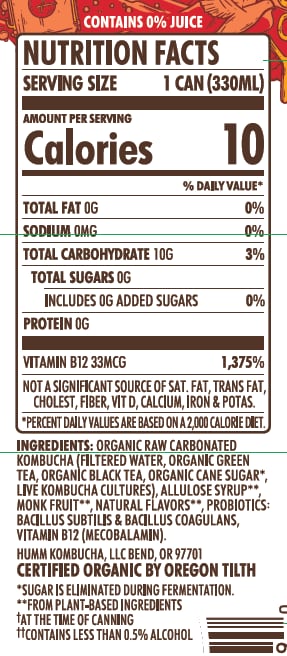
Humm – one of several kombucha brands that has been sued over alleged mislabeling of its alcohol and sugar content – is no longer involved in any litigation, having privately settled a suit from a rival last summer.
As it is a proprietary process (which the company is keeping as a trade secret), Humm has not disclosed the means by which alcohol levels are controlled to remain consistently below 0.5% abv. However, it has in the past referred to a “closed” fermentation that does not allow wild yeast in the air to get into the product and change the DNA of the SCOBY (symbiotic culture of bacteria and yeast) over time.
Similarly, it is not using heat pasteurization or an aggressive filtration process prior to bottling that eradicates residual yeast, or spinning cone technology (deployed by brands such as Brew Dr and Aqua ViTea to remove alcohol post the fermentation).
“Our controlled brewing process doesn’t create very much alcohol in the first place,” said Danek. “It actually doesn’t even get close to 0.5% so there’s no alcohol to remove.”
Humm has also added well-characterized probiotic strains to its kombucha to ensure it can safely describe its products as ‘probiotic,’ said Danek, although she says this is for legal reasons and not because the firm’s process harms the live bacteria produced during the fermentation process.
Inside baseball
Asked whether Humm has any strong views on the creation of a standard of identity for kombucha, something supported by market leader GT’s Living Foods, Witherall said he preferred to “focus on what consumers want, which is health, taste and convenience, rather than inside baseball.”
